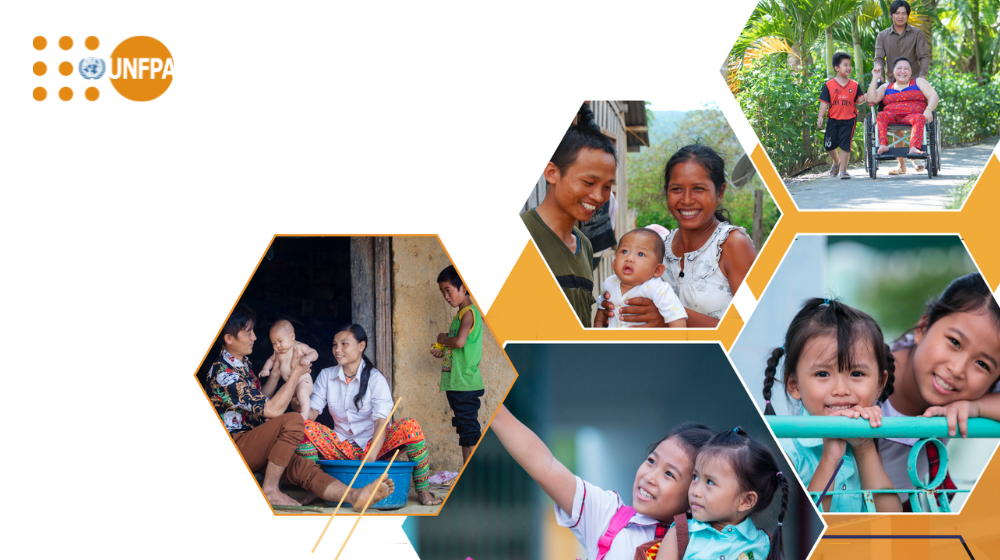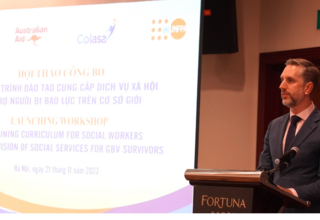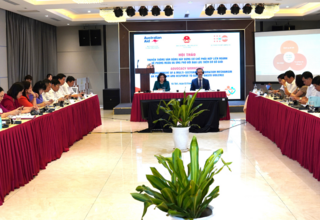Overview
Gender equality is a human right. Women are entitled to live with dignity and with freedom from want and from fear. Gender equality is also a precondition for advancing development and reducing poverty: Empowered women contribute to the health and productivity of whole families and communities, and they improve prospects for the next generation.
Gender-based violence (GBV) and gender biased sex selection (GBSS) are maintained by unequal power structures and relations between women and men, both as groups and as individuals. Yet, domestic violence in Viet Nam continues to be viewed predominantly as a woman’s issue, tied to internal family conflict, and son preference is often seen as an inter-generational gender ‘norm’. A national study on domestic violence against women in 2010 showed that 58% of the surveyed women had experienced at least one form of physical, sexual or emotional violence, of which 87% did not seek help from public services. Violence against women not only has severe consequences for the individual woman and her family. There are also economic costs. Recent research shows that women who experience violence earn about 35% less than those who do not. The overall productivity loss caused by domestic violence is estimated at 1.78 percent of Viet Nam’s GDP – a significant drain on the national economy.
Sex selection in favor of boys is a serious consequence of pervasive social, cultural, political and economic injustices against women, and manifests a violation of women’s human rights. Declining fertility and rapid developments in pre-natal sex selection technology have exacerbated this practice, bringing the sex-ratio at birth (SRB) imbalance to 112.2 boys per 100 girls in 2014. In some provinces, this skewed sex ratio at birth even exceeded 120. Patriarchal structures and gender attitudes in Viet Nam that reinforce son preference also fuel violence against women and girls.
An imbalanced sex ratio at birth will affect Viet Nam’s population structure in the future. The potential consequences are serious. A scarcity of women can increase pressure on them to marry at a younger age and perhaps drop out of school to do so. There may be a rising demand for sex work, and trafficking networks may also expand.
UNFPA’s Response
UNFPA in partnership with other UN agencies, including UNODC, UN Women, WHO, UNICEF, UNDP and other development partners, has provided technical assistance to strengthen the capacity for key Government partners at both national and provincial levels, such as the Ministry of Health (MOH), the Ministry of Labour, Invalids and Social Affairs (MOLISA), the Ministry of Culture, Sports and Tourism (MOCST) and Social Organizations (SOs) to promote gender equality, address gender-based violence and gender biased sex selection and improve access to SRH/HIV services for women and girls.
UNFPA in partnership with other UN agencies and development partners, has provided technical assistance to strengthen the capacity for key Government partners at central level, such as the Ministry of Health (MOH), the Ministry of Labour, Invalids and Social Affairs (MOLISA), the Ministry of Culture, Sports and Tourism (MOCST) and Social Organizations (SOs) to address priority areas including gender equality, DV and SRB imbalance in Viet Nam.
Together with the Ministry of Culture, Sports and Tourism, UNFPA provides support for a national coordinated response to domestic violence, focusing on four areas:
- Developing a national coordination mechanism that will strengthen coordination between different partners working to prevent domestic violence;
- Strengthening monitoring and evaluation, including conducting another national survey on domestic violence; and
- Developing a comprehensive minimum package of interventions to support those women affected by domestic violence. This package includes prevention as a first step, as well as care, treatment and protection;
- Developing advocacy campaigns to raise awareness among general public, particularly men and boys to end violence against women and girls.
We also support the Ministry of Labour, Invalids and Social Affairs to generate evidence on gender-based violence, and the General Office for Population and Planning, Ministry of Health to generate evidence on the imbalanced sex ratio at birth, and to use this evidence in advocacy and policy development, thereby helping to promote and implement the National Strategy and Programme of Action on Gender Equality.



